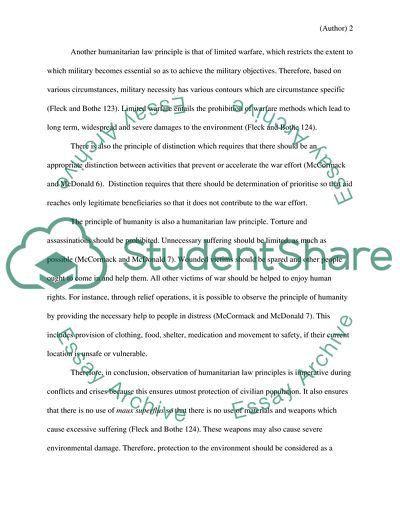Cite this document
(“Basic Principles of Humanitarian Law Research Paper”, n.d.)
Basic Principles of Humanitarian Law Research Paper. Retrieved from https://studentshare.org/law/1809420-humanitarian-issues-three-question-essay-see-word-document-for-instructions
Basic Principles of Humanitarian Law Research Paper. Retrieved from https://studentshare.org/law/1809420-humanitarian-issues-three-question-essay-see-word-document-for-instructions
(Basic Principles of Humanitarian Law Research Paper)
Basic Principles of Humanitarian Law Research Paper. https://studentshare.org/law/1809420-humanitarian-issues-three-question-essay-see-word-document-for-instructions.
Basic Principles of Humanitarian Law Research Paper. https://studentshare.org/law/1809420-humanitarian-issues-three-question-essay-see-word-document-for-instructions.
“Basic Principles of Humanitarian Law Research Paper”, n.d. https://studentshare.org/law/1809420-humanitarian-issues-three-question-essay-see-word-document-for-instructions.


